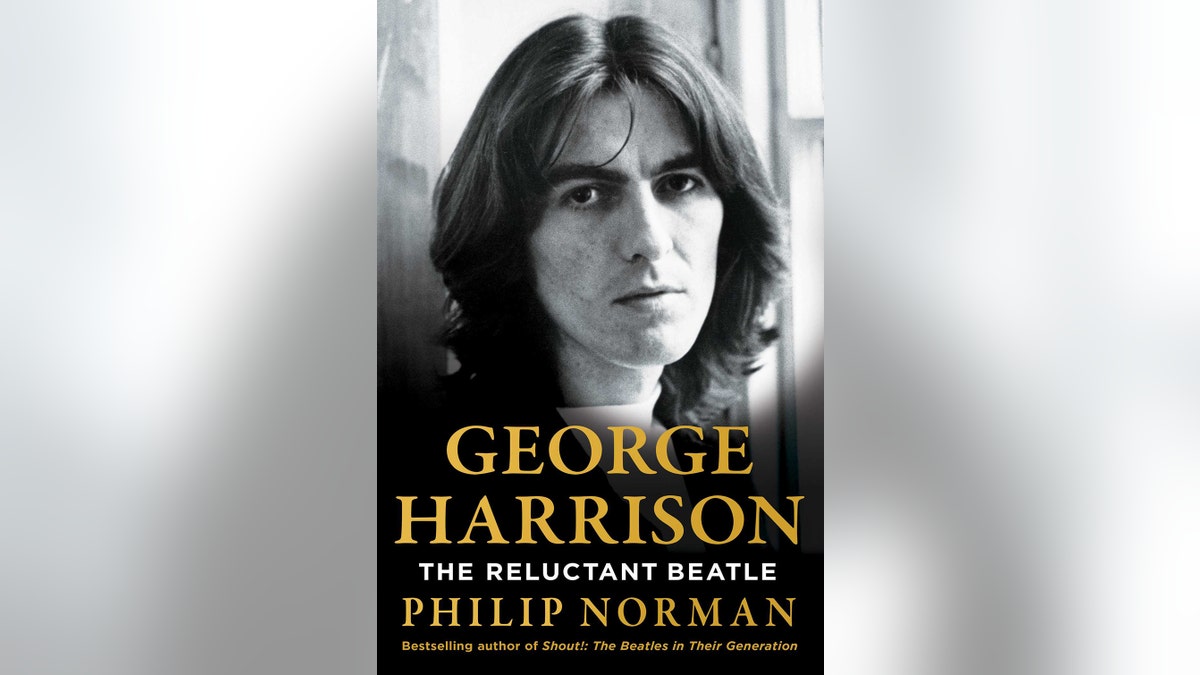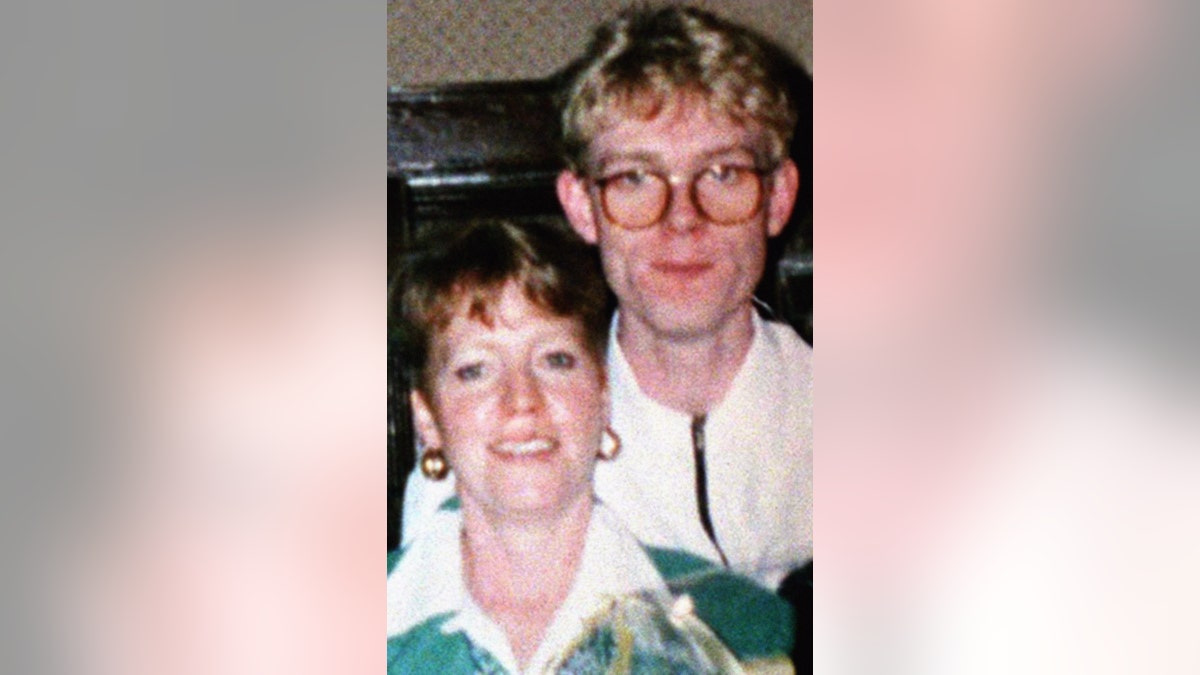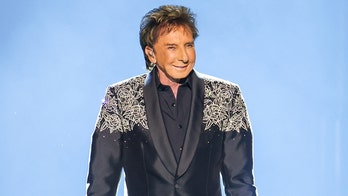Fox News Flash top entertainment headlines of November 8
Fox News Flash top entertainment and celebrity headlines are here.
On Dec. 30, 1999, George Harrison nearly became the second Beatle to be murdered.
The group’s lead guitarist and his wife Olivia had just gone to bed when an intruder broke into the couple’s Friar Park mansion. At first, Olivia thought the sound of breaking glass was a falling chandelier. But when she realized a stranger was in their home, she immediately woke Harrison, who went to investigate as she called the police.
Harrison was following the smell of cigarette smoke when, in the hallway, he saw a man holding a stone sword from a smashed statue in one hand and a kitchen knife in the other.
Harrison attempted to grab the knife during a struggle. Both men fell, and the assailant, on top of him, began stabbing him repeatedly. Harrison later said he thought to himself, "I’m being murdered in my own house."
BEATLES' GEORGE HARRISON, ERIC CLAPTON LOVE TRIANGLE 'WAS LIKE AN ARRANGED MARRIAGE': BOOK

In 1999, Beatle George Harrison (left) was stabbed 40 times by Michael Abram (right) in his home. (Getty/Shutterstock)
The attack is chronicled in a new book by Philip Norman, "George Harrison: The Reluctant Beatle," which places a spotlight on the beloved singer/songwriter’s life and career. Harrison died in 2001 at age 58 from cancer.
"It was very much another case of Mark David Chapman and John Lennon, which led to John’s assassination in 1980," the bestselling biographer told Fox News Digital. "It’s fan worship that curdles in hatred because, in some way, the fan thinks the object of his love and attention has betrayed his ideals in some way. … The Beatles were seen as more than just a musical group. They were like a philosophy, a way of life and ethos. When the real Beatles don’t measure up to that, that creates this desire for vengeance.
"George did nearly become the second Beatle to be assassinated by someone who had a grudge against him."

Bestselling biographer Philip Norman chronicled the harrowing ordeal in a new book, "George Harrison: The Reluctant Beatle." (Scribner)
According to the book, Harrison was stabbed 40 times, with one narrowly missing his heart. He suffered a punctured lung.
It was Olivia who saved her husband. Facing his attacker, she picked up the nearest weapon on hand, a brass poker, and "laid into George’s attacker with it." When that had no effect, she then "grabbed a standard lamp, inverted it and bludgeoned their assailant with its heavy base." She sustained a head wound.
Within 12 minutes, officers were at the house. Harrison’s son Dhani also rushed to his father’s side.
CLICK HERE TO GET THE FOX NEWS APP

A police officer stands outside the Lodge gates of George Harrison's Friar Park property Dec. 30, 1999. At the time, the Beatle was taken to Royal Berks Hospital in Reading in the early hours after being stabbed in his home by an intruder. (Martyn Hayhow/AFP via Getty Images)
"George was lying just inside the half-open bedroom door, bleeding profusely from multiple stab wounds, a mixture of blood and air bubbling from the gashes in his chest, his very lips and teeth bloody," Norman wrote. "There was blood on the walls and all over the floor, mixed with scarlet fragments from the lamp-base Olivia had used as a club. … With no paramedics there yet, Dhani tried to stanch his wounds with paper tissues and a towel, but it was a hopeless task."
Harrison, becoming paler, murmured to his son, "I’m going out." Dhani supported his father’s head and held his hand, urging him to "stay with me."
According to Norman, Harrison died nearly four times before paramedics arrived. He was "pulled back from the brink by the sound of his son’s voice."

Philip Norman said it was George Harrison's wife Olivia who saved the Beatle that fateful night. (Tom Wargacki/WireImage)
Harrison survived, but it was "a devastating psychological, as well as physical attack," Norman shared.
"This attack occurred in his home, one that he loved so much," said Norman. "It was so different from the tiny house he grew up in Liverpool. The gardens were his pride and joy. He thought he might be remembered as a gardener more than a musician. And he was always so private."

George Harrison took great pride in his Friar Park home. (Tim Ockenden/PA Images via Getty Images)
Harrison’s assailant was Michael Abram, a 34-year-old Liverpool resident and paranoid schizophrenic, the book says. Six weeks before the attack, he was denied treatment by the psychiatric unit at Whiston Hospital after doctors concluded "he wasn’t suffering from any mental illness."
He believed his "homicidal mission" was "doing God’s will."
LIKE WHAT YOU’RE READING? CLICK HERE FOR MORE ENTERTAINMENT NEWS

An undated picture of Michael Abram with his mother Lynda. (Getty Images)
As Harrison recovered, he received an outpouring of support from his surviving bandmates, as well as "thousands of his fans across three generations." Tom Petty quipped, "Aren’t you glad you married a Mexican girl?"
But there was also an ugly side forming. Playwright John Mortimer, who lived near Friar Park, recalled seeing people driving past the front gate of the property, shouting their support for Abram. Some even sent flowers to Abram while he was at the hospital being treated for the injuries from the attack.
"These were just very horrible people who were probably drunk," said Norman. "It showed how Britain had changed in the years since the chaotic, but humorous days of Beatlemania. … Britain had become a nastier place, unfortunately."

Thoracic surgeon William Fountain, who treated Beatle George Harrison, is seen here speaking during a news conference at Harefield Hospital. "There are a number of stab wounds," he said at the time. "There is one which has punctured his chest which is the most worrying. No stab wound to the chest is minor." (Peter Jordan/PA Images via Getty Images)
The book noted it took 11 months for Abram to be tried at Oxford Crown Court on two counts of attempted murder. Whiston Hospital was also under fire for failing to properly assess Abram’s mental state while he was a patient. The chief executive of the hospital’s governing body, Knowsley and St. Helens NHS Trust, made a public apology.
Abram also wrote an apology letter to the Harrisons.
"I thought my delusions were real," he wrote, as quoted by the book. "And everything I was experiencing was some kind of witchcraft."
CLICK HERE TO SIGN UP FOR THE ENTERTAINMENT NEWSLETTER

Health officials apologized to George Harrison after an inquiry found "significant failings" in the care of Michael Abram. Hospital bosses accepted that they failed to "assess and manage" Abram's "mental health problems." (Phil Noble/PA Images via Getty Images)
Olivia and Dhani attended the trial with both heavy police and private security protection. Harrison, who was still weak from his wounds and "traumatized," was allowed to give written evidence.
After two days of deliberations, the jury found Abram not guilty by reason of insanity. He was ordered to be detained "indefinitely" at a psychiatric unit near Liverpool. The book noted that Geoffrey Robertson, counsel for the Harrisons, asked that the family should be given an advanced warning if Abram were to ever be released. However, a judge said he had no powers to make that order.

A police officer removes a bag found hidden close to the gates of George Harrison's Friar Park property following the attack. (Martyn Hayhow/AFP via Getty Images)
"It’s tragic that anyone should suffer such a mental breakdown [but] we can never forget he was full of violence and hatred when he came into our home," Dhani said in a statement on behalf of the family. "Naturally the prospect of him being released back into society is abhorrent to us."

Dhani Harrison, with his mother Olivia Harrison, outside Oxford Crown Court, where he read a statement. ( Tim Ockenden/PA Images via Getty Images))
The book noted that, in July 2002, Abram was deemed fit to be released back "into the community."
"Three years later, he was reportedly training to become a volunteer adviser for the Citizens Advice Bureau," the book claims.
"In the end, not paying a very heavy price," Norman told Fox News Digital.

Lynda Abram with a copy of the report into her son Michael after a press conference about his care and treatment. (Phil Noble/PA Images via Getty Images)
At the time, a spokesperson for Mersey Care Trust said, "In this case, the tribunal has given a conditional discharge. The conditions, which remain confidential, are to ensure the safety and security of the public," the U.K.'s Independent reported.
According to the outlet, Abram expressed remorse for his actions.

George Harrison led a quiet, private life following the attack he and his wife Olivia endured. Harrison died in 2001 at age 58 from cancer. (PA Images via Getty Images)
"If I could turn back the clock, I would give anything not to have done what I did in attacking George Harrison," he said, as quoted by the outlet. "But looking back on it now, I have come to understand that I was at the time not in control of my actions. I can only hope the Harrison family might somehow find it in their hearts to accept my apologies."















































